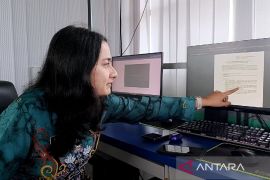Jakarta (Antara) - Cigarette smoking globally claims more than 600 thousand lives every year, according to the National Commission on Tobacco Control (Komnas PT) in its press release here on Monday.
Komnas PT Chairman Dr Prijo Sidipratomo stated that exposure to cigarette smoke for both active and passive smokers are equally proven to cause heart disease, cancer, and other ailments.
"The toxins present in cigarettes can enter the bloodstream and cause blood clots that raise the risk of heart attacks and strokes if one is exposed to cigarette smoke for 30 minutes," he pointed out.
He noted that exposure to cigarette smoke has also been proven to increase the risk of low birth and early death, and consequently, there is no completely safe level of exposure to cigarette smoke.
Therefore, Prijo pointed out that several countries in the world have long been implementing various regulations to safeguard their citizens from the dangers of exposure to cigarette smoke.
The Komnas PT chairman explained that the adverse effects of cigarette smoking are not only harmful to the society but also to the stability of the nation.
Prijo noted that the WHO Framework Convention on Tobacco Control (WHO FCTC) has been developed in response to the globalization of the tobacco epidemic and is an evidence-based treaty that reaffirms the right of all people to the highest standards of health.
He stated that the Convention represents a milestone for the promotion of public health and provides new legal dimensions for international health cooperation.
"Within the WHO FCTC framework, it is mentioned that the public should be protected from the dangers of cigarette smoking, but unfortunately, Indonesia, as one of the initiators, has not been committed to implementing the FCTC," he affirmed.
Further, Prijo emphasized that Indonesia has only implemented Law No.39/2009 on health protection to regulate the risks of cigarette smoking, but those who obey the law are very limited.
He added that the government has also outlined cigarette-smoke-free zones in public places, but the application is very low. (WDY)






